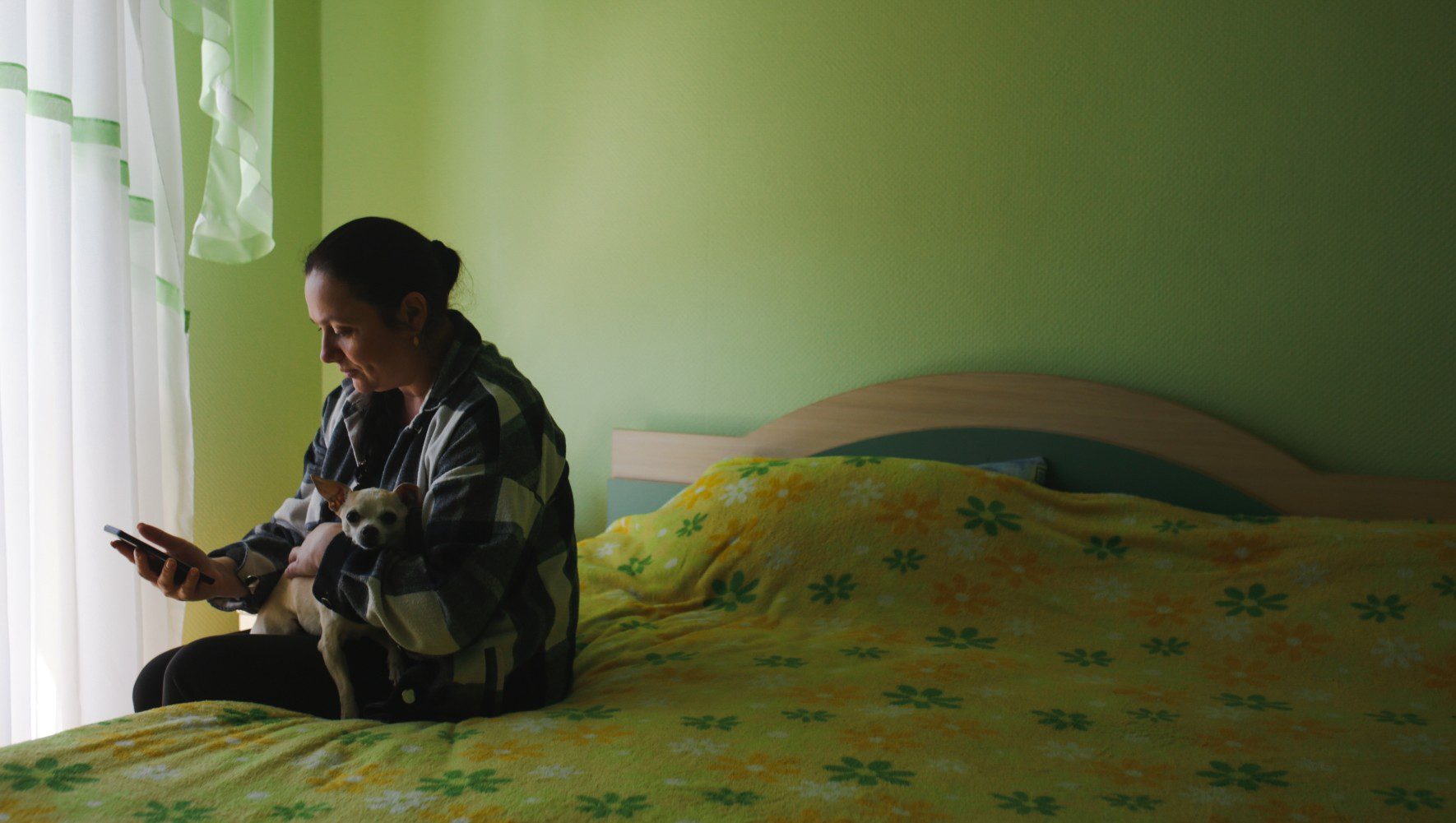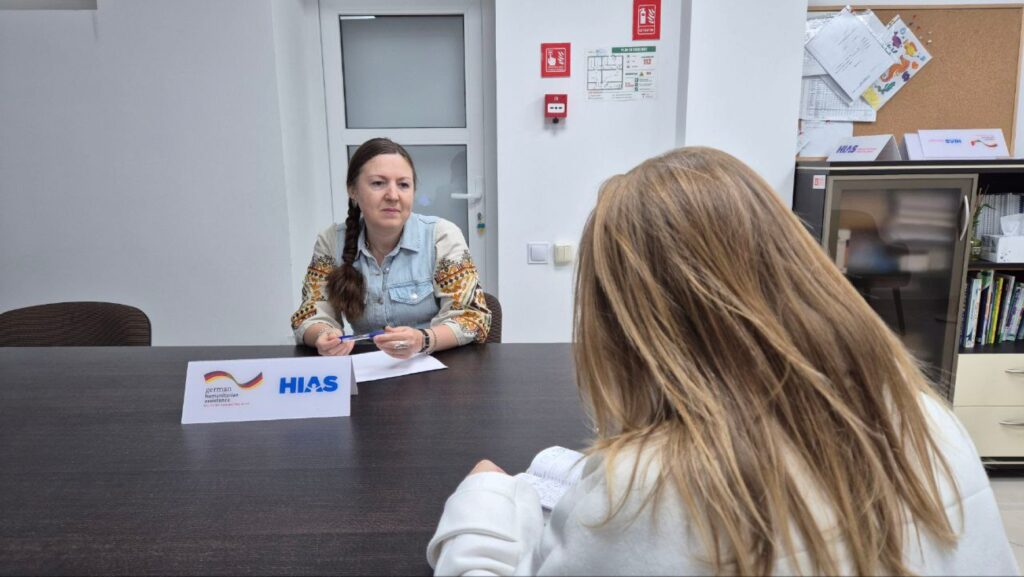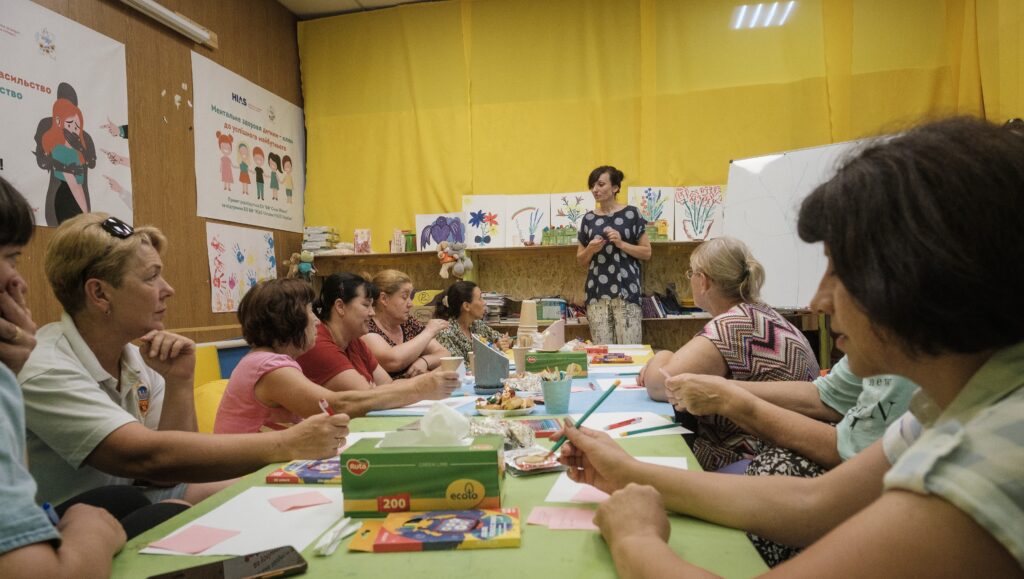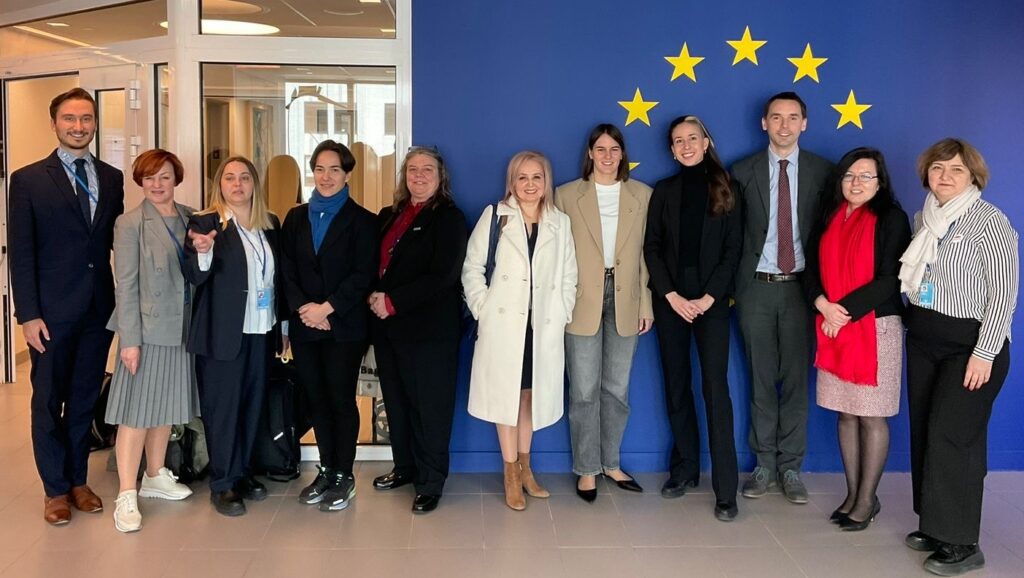
Amid the ongoing conflict in Ukraine and its regional impact, vulnerable populations—especially women, girls, and displaced people—face heightened risks of trauma and violence. With the support of the German Federal Foreign Office (GFFO), HIAS Europe and our local partners are improving access to essential services to support survivors and prevent violence against women and girls.
In Moldova, HIAS works with women-led organizations the Roma National Center (CNR) and Biaz Gul to provide survivor-centered case management, mental health care, and awareness sessions to prevent sexual and domestic violence.
HIAS and our partners are helping survivors find safety, rebuild confidence, and become advocates for others. These are their stories.
Oxana
In the spring of 2023, Oxana fled Odesa, Ukraine, with her two children as bombings intensified. Carrying only a few bags, she crossed into Moldova seeking refuge.
In 2024, Oxana began receiving support from the National Roma Center (CNR), as part of the program funded by GFFO and implemented with the support of HIAS. Through one-on-one sessions with the mobile team, she found a safe space to speak about the abuse she had endured from her former partner in Ukraine, something she had never shared before.
With personalized psychological care and legal counseling, Oxana began to heal. As a mother, she also joined a parental support and stress management program, where she learned new ways to communicate with her children and manage anxiety, a positive change that those around her quickly noticed.
To help her through this difficult transition, CNR provided essential food and hygiene supplies for her family. This assistance offered her “a sense of safety and dignity at a time when my resources were stretched thin,” she said.
Oxana obtained temporary protection documents for her children, secured their access to education, and is now enrolled in an employment program.
Oxana secured temporary protection documents for her children, ensured their access to education, and enrolled in an employment program. As she regained stability, she also joined information sessions on preventing sexual violence. Today, she’s a vocal advocate in the refugee community, helping other women recognize and report abuse.
“For the first time in a long while, I feel that I have rights and can ask for help without fear,” Oxana said.
Your support matters
Anna
Just six months ago, Anna was living in constant fear. Her partner, once caring, had become abusive. She tried to stay “convenient,” hoping to avoid his anger.
“My life felt like an endless nightmare,” Anna said. “I lived with a man who once seemed reliable and caring, but over time, everything changed.”
Anna’s turning point came when she attended a meeting organized by the mobile team of Biaz Gul, part of the program funded by GFFO and implemented with the support of HIAS. There she learned what violence is, how to recognize it, and how to seek help.
“I particularly remembered the psychologist’s words: ‘You don’t have to endure it. No one has the right to take away your peace and dignity.’ Those words became a turning point for me,” Anna said.
A few weeks later, Anna’s partner physically assaulted her again. This time, she called for help. The mobile team from Biaz Gul responded immediately and took her to the Regional Center for the Rehabilitation of Victims of Domestic Violence.
At the Center, Anna received psychological support, legal help in obtaining a restraining order, and social assistance in gathering documents and materials so she could restart her life.
“They believed in me and did not judge me,” Anna said. “Day by day, I felt my confidence, calm, and self-worth returning.”
Now, Anna has safe housing, a new job, and is rebuilding her life in Moldova.
“I’m discovering joy in life again,” Anna said. “I want to tell every woman: don’t be afraid to ask for help. Violence is not normal. A life without fear is possible.”
I want to tell every woman: don’t be afraid to ask for help. Violence is not normal. A life without fear is possible.Anna, refugee and domestic violence survivor in Moldova
Maria
Maria spent years in a common-law relationship marked by escalating abuse. Her partner drank heavily and assaulted her multiple times. She felt isolated and unsure of where to turn.
That changed when she attended a meeting organized by the mobile team of Biaz Gul, part of the program funded by GFFO and implemented with the support of HIAS. There, she learned how to identify psychological and physical violence and what her options were.
Soon, Maria’s partner physically assaulted her again. This time, she had the tools to get help.
“When he fell asleep, I gathered all my courage and called the hotline number,” Maria said. “That was the beginning of my new life.”
The mobile team of Biaz Gul responded immediately and took Maria to the Regional Center for the Rehabilitation of Victims of Domestic Violence. She received medical care, psychological support, legal help to obtain a protection order, and essential supplies like food, clothing, and hygiene items.
But what meant the most to Maria was the way she was treated, with dignity and respect.
“From the very first days, they spoke to me as a normal, worthy person. They believed in me, supported me, and celebrated every small change and every step forward.”
Now safe in her home in Moldova, Maria is recovering and reconnecting with her family.
“I had become myself again,” Maria said. “I have my family back, as well as faith in myself and gratitude to Biaz Gul, who gave me the chance to start over.”



